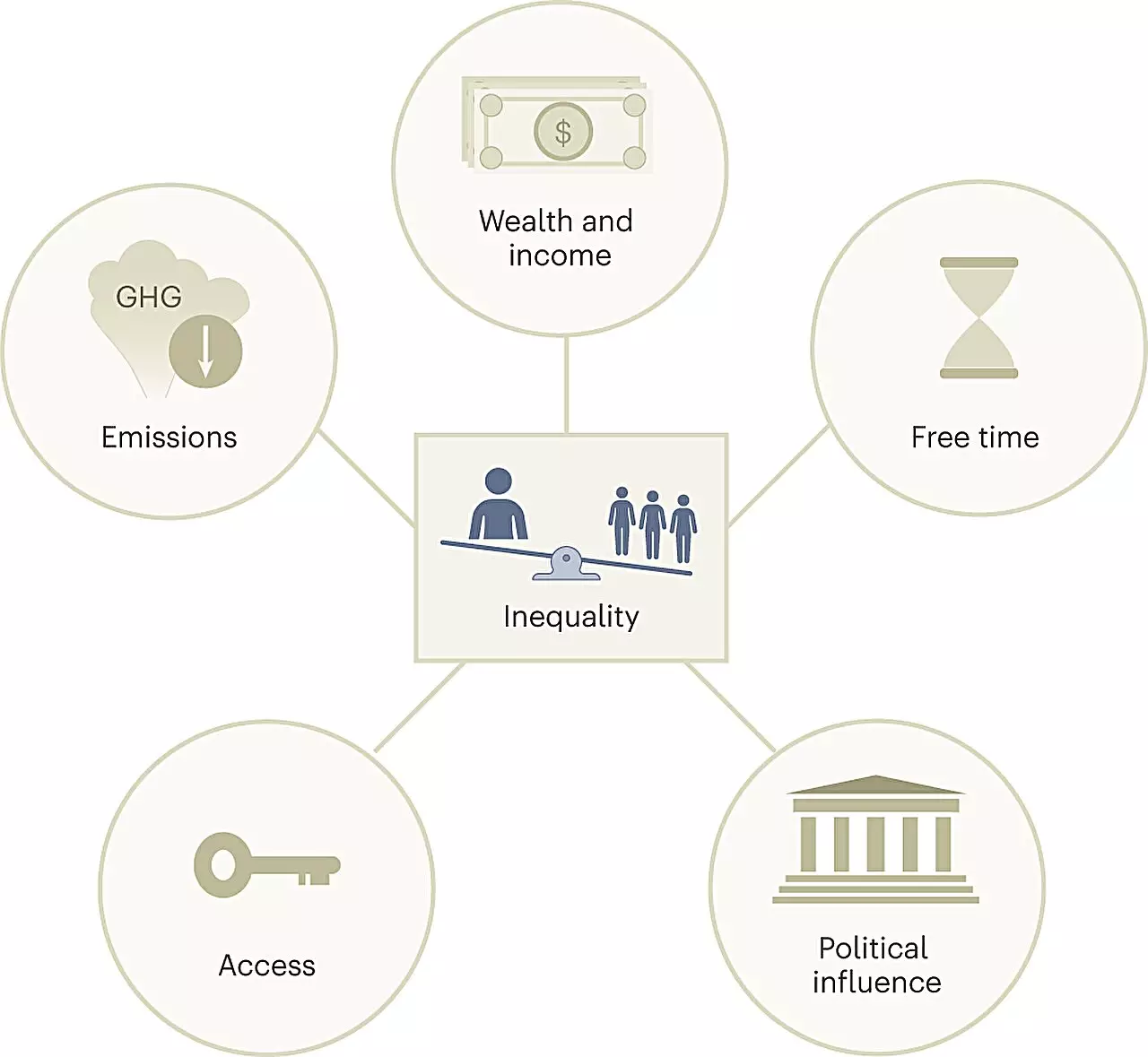Promoting climate-friendly behaviors is essential in our collective efforts to combat climate change. However, a new report published in the journal Nature Climate Change highlights the significance of addressing inequality to effectively transition towards a sustainable future. The researchers argue that societal inequalities restrict the adoption of low-carbon behaviors, emphasizing the need for comprehensive changes across all income brackets. In this article, we explore the implications of inequality in promoting climate-friendly behaviors and the potential solutions that policymakers can implement.
The Impact of Inequality on Climate-Friendly Behaviors
The researchers found that inequality hinders individuals’ capacity to switch to lower-carbon behaviors in various ways. Wealthier individuals may have larger carbon footprints, but they often possess the means to reduce their emissions more easily compared to those with lower incomes. The report highlights the lack of political recognition regarding the barriers that impede people from adopting climate-friendly behaviors. Key factors contributing to inequality include financial constraints, limited access to low-carbon alternatives, and constrained free time.
Financial Barriers and Affordable Solutions
One notable aspect of inequality is the financial barrier that prevents certain individuals from making sustainable choices. For instance, insulating a house in the UK can be expensive, and government subsidies primarily benefit homeowners, leaving renters with little control over their living conditions. The researchers advocate for government schemes that make it more feasible for individuals with lower incomes to reduce their home’s carbon emissions. By providing appropriate support, policymakers can ensure that everyone has equal opportunities to engage in sustainable practices.
Accessibility of Low-Carbon Food Choices
Dietary choices play a significant role in carbon emissions. Plant-based diets are considered one of the most effective ways to reduce an individual’s carbon footprint. However, the affordability of plant-based alternatives poses a challenge. Currently, plant-based meat substitutes tend to be more expensive compared to animal products. To promote equitable access to low-carbon food choices, market interventions and policy measures are necessary, enabling affordable plant-based alternatives to be accessible to individuals across all income groups.
Transportation is a major contributor to carbon emissions. While electric vehicles and bikes are touted as eco-friendly options, the upfront costs can be a significant barrier for individuals with limited financial stability or unstable employment. Additionally, public transportation remains inadequate in many regions, especially rural areas, undermining the feasibility of using alternative modes of transport. Addressing these challenges requires a multi-faceted approach, including tax breaks, financing options, and improving public transport infrastructure to make low-carbon transportation accessible for all.
The report emphasizes the need for a shift in policy interventions beyond solely providing information. While raising awareness is crucial, addressing the systemic barriers to behavior change is equally important. Urban planning plays a pivotal role in creating urban environments that are conducive to low-carbon lifestyles, incorporating infrastructure like dedicated bus and bike lanes and pedestrian-friendly routes. Furthermore, progressive taxation rates on wealth and income can help redistribute resources and ensure that the financial burden of climate action is shared equitably across society. Employer-subsidized low-carbon meal options can also incentivize sustainable choices within the workforce.
In order to effectively mitigate climate change, it is imperative to acknowledge and address underlying inequalities that hinder the widespread adoption of low-carbon behaviors. While wealthier individuals may have a greater capacity to change their behaviors, it is essential to provide equal opportunities for low-carbon actions across all income brackets. By implementing inclusive policies, such as affordable housing insulation schemes, accessible plant-based alternatives, and improved public transportation, we can build a more equitable and sustainable future for all. It is time to prioritize tackling inequality as a key driver for promoting climate-friendly behaviors and achieving a net-zero society.


Leave a Reply